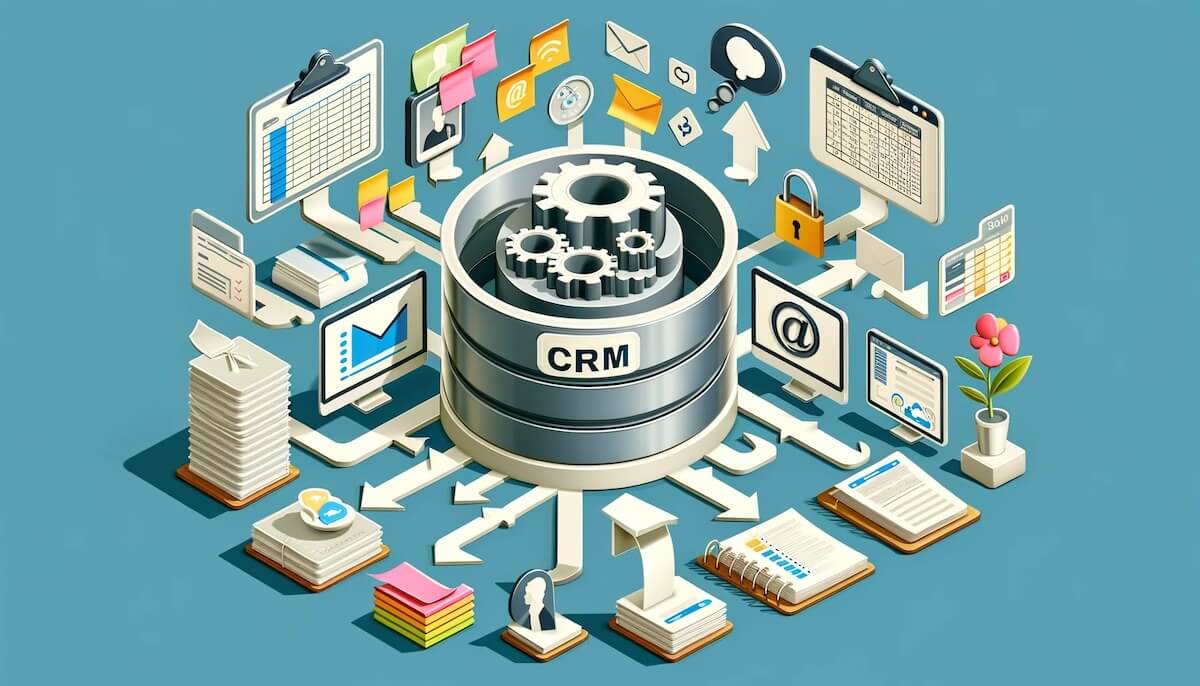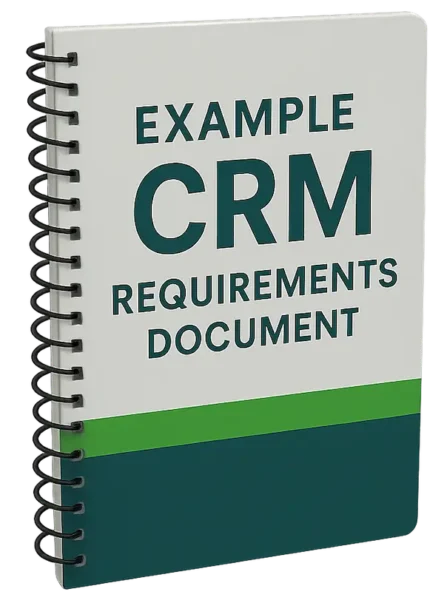At CRM Switch, we are true to our brand and mainly cover topics related to switching from a legacy CRM system to a new one.
However, your company may not have implemented a CRM system, and its stakeholders may wonder if the organization should make a first-time CRM investment.

Here are five common organizational problems and a description of how CRM can solve these problems.
Prospect and customer data are scattered
Within companies that don’t have a CRM system, prospect and customer information can be found on business cards, notepads, Post-its, emails, documents, and spreadsheets. Worst of all, essential data is often only stored in people’s brains.
CRM consolidates all this disparate information and makes it globally accessible within an organization (of course, data records can be secured so that people only have access to what they should see).
Management has limited visibility to sales pipeline information
Without a CRM system, pipeline data can be a weekly information extraction and compilation exercise.
Salespeople must be repeatedly reminded to email a spreadsheet of potential deals, and then an administrator must manually consolidate the information for management.
With a CRM system, a company has a centralized, Web-based system where salespeople can maintain their pipeline of sales opportunities.
Management can pull reports on-demand, or reports can be automatically emailed.
Will some salespeople still have to be reminded to update their deals? Of course.
Customer service response time is slow
If a company does not have a structured, shared system for fielding customer service issues and collaborating on issue resolution, client problems can languish.
Sometimes, a critical customer issue can be lost sight of altogether.
A CRM system can provide customers with multiple options for issue submission.
Requests from all channels are funneled into a single shared repository of Tickets or Cases. Issues can be resolved collaboratively from there.
Automatic Ticket assignments based on issue type and automatic escalations based on defined parameters are possible within CRM.
Marketing operates on an island
Marketing does its job of generating leads, but new leads are not distributed in a timely fashion.
The marketing department receives no metrics as to which marketing efforts have been the most effective, which means that marketers “fly blind” on an ongoing basis.
A CRM system integrates marketing functions into the sales department’s operations. New leads can be fed into a CRM system and automatically assigned to the right salesperson.
Since the progress of leads can be followed through the entire sales process, the marketing department can understand which campaigns are the most effective and better focus its future efforts.
Internal collaboration involves a lot of email
Internal communication and collaboration are accomplished in many organizations by copying many people on many emails.
Staff becomes overwhelmed with email, and people often overlook critical information since they don’t have time to process the relentless flow of information.
Specific CRM systems now incorporate collaboration features that can be a substitute for an over-reliance on email.
A CRM system can be a repository of quotation templates, customer email templates, and presentation templates.
Internal conversation threads can be similar to those found on social media sites, which is becoming a more natural way for a group of people to communicate electronically.
These are just a few of the reasons that companies invest in CRM.



